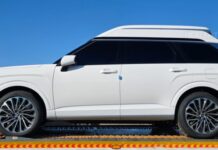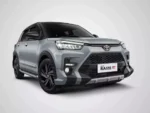Consumer Reports (CR) has released its 2023 reliability rankings, shedding light on the most reliable and most frequently repaired vehicles according to owners. It comes as no surprise that Lexus and Toyota took the top spots, but Mini’s third place may come as a surprise, surpassing some Japanese automakers including Acura, Honda, and Subaru.
Jake Fisher, CR’s Senior Director of Auto Testing, said: “Buying a reliable car is a great way to avoid inconveniences when it comes to repairs, especially while the vehicle is still under warranty, and it’s a smart way to save on ownership costs over time. That’s why consumers consistently tell us that reliability is one of the most important factors when buying a car.”
This year, CR gathered data from over 330,000 vehicles through surveys distributed to its members. Most of these vehicles were model years 2000 through 2023, with some early 2024 MY models. Notably, the research expanded to include 20 trouble spots, including electric powertrain, batteries, and charging aspects for electric vehicles (EVs, PHEVs, HEVs).
Each model was evaluated, resulting in a reliability score, ultimately leading to predicted rankings for each brand. Lexus claims the top spot in this year’s ranking, displacing last year’s leader Toyota. Meanwhile, Mini secures the 3rd position, surpassing its parent brand BMW. On the other end, Chrysler, Mercedes-Benz, and Rivian find themselves at the bottom of the list, representing the least reliable models. Below, you’ll find the full rankings of car manufacturers from most reliable to least reliable.
When it comes to regional reliability, Asian brands maintain a strong performance with an average score of 63/100. In contrast, the rest of the world lags behind, with European automakers achieving an average score of 46/100 and American automakers only reaching 39/100.
The top 10 leading models are mostly dominated by Toyota, with 7 out of 10 positions occupied by the Japanese automaker. Topping the list is the Toyota 4Runner, a model that has received minor upgrades since 2009, showcasing the reliability of Toyota’s sturdy ladder-frame architecture. A completely new generation of this SUV is on the horizon, and it will be interesting to see if it can match the reliability of its predecessor. Following closely are the Camry Hybrid and Camry sedan with equal scores. The only non-Toyota products in this elite group include the BMW X5 (ranked 5th), Subaru Forester (ranked 6th), and Acura RDX (ranked 8th).
While body style may not directly impact reliability, CR calculated average scores for different categories. Traditional body styles, including sedans, hatchbacks, and wagons, continue to lead in reliability with an average rating of 57/100. They are followed by SUVs with a 50/100 rating, compact trucks with a 45/100 rating, and full-size trucks with a 41/100 rating.
One factor that seems to be more important than ever for reliability is the type of propulsion system. Owners of fully electric vehicles report more problems than those with gasoline-powered vehicles, indicating that automakers still have work to do to master the entirely new technology.
Plug-in hybrid vehicles, on the other hand, are reported more than 146% more than conventional ICE (Internal Combustion Engine) vehicles. However, non-plug-in hybrid vehicles have fewer issues than ICE vehicles, with some examples proving to be more reliable than non-electrified vehicles.
Sơn Phạm (forum.autodaily.vn)















































